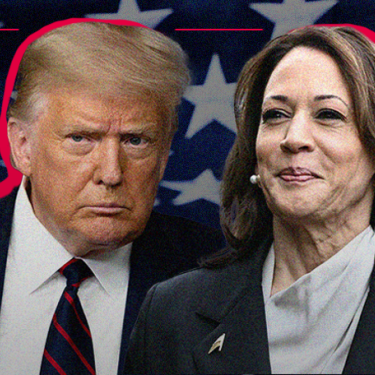USA: Press freedom increasingly at stake as Americans head to polls

As Americans cast their votes on November 5, Reporters Without Borders (RSF) is once again urging both presidential campaigns to commit to protecting and promoting press freedom. Whoever wins the presidency can use RSF’s 10-Point Plan for U.S. Press Freedom as a guide to strengthen freedom of the press at home and restore American leadership on press freedom globally.
The United States is ranked 55th on the 2024 edition of RSF’s World Press Freedom Index, a historic fall of 10 places from the year before. The erosion of American press freedom is due, in part, to declining trust in the media, threats and violence against journalists, and stalled legal reforms. RSF also recently highlighted some of the more localized problems surrounding press freedom in a recently published report, which found severe shortcomings in the economic, political, and safety situation for journalists in key swing states which could affect the election. The next presidential administration has the opportunity to prioritize these issues and prove that the U.S. is a leader on press freedom.
“Americans can no longer take freedom of the press for granted. The next president needs to commit themselves to boosting media freedom in this country and around the world. Democracy depends on the safety, independence, and pluralism of journalism. RSF will be eager to help the next president work to implement a positive press freedom agenda, starting with the ten points laid out in RSF’s own plan.”
Clayton Weimers
Executive Director, RSF USA
RSF first published a 10-Point Plan for U.S. Press Freedom earlier in 2024:
- Consistently position the United States as a global leader in press freedom and speak out against press freedom violations wherever they occur.
- Commit to freeing wrongly detained American journalists and securing justice for American journalists killed abroad.
- Prioritize press freedom in American diplomacy at the bilateral and multilateral levels.
- Lead by example through regular press briefings, fair and apolitical media accreditation processes, and regular interviews with a variety of outlets.
- Treat journalists and members of the media with respect.
- Publicly reaffirm the right and necessity of journalists to do their jobs safely, including covering demonstrations and protests.
- Commit to signing the PRESS Act.
- Champion regulation of AI that protects the reliability of information.
- Establish a U.S. Special Envoy for Press Freedom or a similar office.
- Commit to reforming the Espionage Act to include a public interest defense.
The candidates’ records
RSF noted in July 2024 that Vice President Kamala Harris had been largely silent on press freedom issues and, as a result, her record lies squarely with that of the Biden Administration. To the extent she has spoken about press freedom since then, she has taken the opportunity to criticize her opponent for wanting to target “journalists whose stories he doesn’t like.”
On the one hand, the Biden Administration has celebrated several key achievements, such as freeing wrongly detained journalists Evan Gershkovich and Alsu Kurmasheva from Russian captivity. Under the Biden administration, the Department of Justice also issued welcome guidance to local law enforcement agencies on how to properly interact with journalists at public demonstrations. However, under President Biden’s leadership, the United States’ ranking on the World Press Freedom Index has continued to slide, and large systemic problems have persisted.
Former President Donald Trump for his part has intensified his attacks on the media. Trump verbally attacked the media over 100 times in a two-month period leading up to the election, according to RSF analysis. He has also issued alarming threats to weaponize the government to punish critical media outlets.
RSF has reached out to both campaigns to offer to meet during the transition period to discuss policies for strengthening press freedom.
